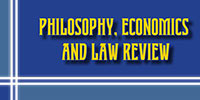Svitlana KHOMIACHENKO
Ph.D. (Law), Associate Professor (Vinnytsia Institute of Trade and Economics of State University of Trade and Economics), Ukraine
ORCID iD: orcid.org/0000-0002-1223-5881
s.homiachenko@vtei.edu.ua
UDC 340
DOI 10.31733/2786-491X-2022-2-152-161
Keywords: destructive influence, minors, upbringing, education, crime, punishment, causes, prevention.
Abstract. In the article, the author’s vision of the role and significance of the Institute of Family in the formation of acceptable socialization and prevention of deviant behavior of the child is presented. The study of the role of the Institute of Family in the formation of acceptable socialization and prevention of deviant behavior of the child remains relevant and requires a systematic approach to understanding the specified problems. The purpose of this article is theoretical characteristics of the problems of the socialization and prevention of behavioral deviations of the child through the prism of the Institution of Family functioning.
In view of the tasks specialization, the method of theoretical analysis of scientific and legal literature was used in the study, which made it possible to clarify modern approaches of researchers to the problems of the impact of the Institute of Family on juvenile delinquency. In the article, the deviation of negative orientation, the socially unacceptable activity of the child and the role of the Institute of Family in correcting this behavior is analyzed.
The main factors and causes of deviant behavior of minors are revealed, the role of the family in the prevention of deviant, socially dangerous deviations are revealed. Emphasizing the determinism of juvenile deviance by social, economic, spiritual and moral factors, the authors substantiates methodological principles of solving the problem through a complex combination of efforts of state and public organizations. The conclusions and recommendations outlined in the article can be used for further research into the problem of juvenile criminology.
References
Buehler, C. (2006). Parents and peers in relation to early adolescent problem behavior. Journal of Marriage and Family, 68(1), pp. 109-124. Doi: 10.1111/j.1741-3737.2006.00237.x.
Bundz, R. (2019). Special cruelty as a sign of crimes committed by minors: Determinants and alerts (PhD thesis, Private Higher Educational Institution “Lviv University of Business ans Law”, Lviv, Ukraine).
Code of Ukraine on Administrative Offenses. (1984). URL : https://zakon.rada.gov.ua/laws/show80731-10#Text.
Constitution of Ukraine. (1996). URL : http://zakon2.rada.gov.ua/laws/show/254к/96-вр.
Convention on the Rights of the Child. (1989). URL : https://www.ohchr.org/en/instrumentsmechanisms/instruments/convention-rights-child.
Criminal Code of Ukraine. (2001). URL : https://zakon.rada.gov.ua/laws/show/2341-14#Text.
Davydova, M. (2019). Determinants of the inducement to take narcotics and measures to eliminate it in Ukraine. Visegrad Journal on Human Rights, 6(2), pp. 46-52.
Didkivska, H. (2017). Family dysfunction in the system of determinants of juvenile delinquency in Ukraine. Vinnytsia: Nilan LTD.
Dundych, L. (2019). The problem of juvenile delinquency in Ukraine and preventive measures. Scientific Bulletin of the International Humanities University. Series: Jurisprudence, 42 (2), pp. 96-99. doi: 10.32841/2307-1745.2019.42-2.24.
Family Code of Ukraine. (2002). Retrieved from https://zakon.rada.gov.ua/laws/show/2947-14.
Humin, O. & Hutsul, R. (2020). Criminological analysis and scientific justification of modern methods of individual prevention of judicial crimes. South-Ukrainian Legal Journal, 1, pp. 24-27. doi: 10.32850/sulj.2020.1.5.
Kvasha, R. (2021). Violent juvenile delinquency in Ukraine as a problem of juvenile criminology (PhD thesis, V. M. Koretsky Institute of State and Law of National Academy of Science of Ukraine, Kyiv, Ukraine).
Law of Ukraine No. 2402-III “On the Protection of Childhood”. (2001, April). Retrieved from https://zakon.rada.gov.ua/laws/show/2402-14#Text.
Mogbana M. & Edward C. (2022). Edward Deviant behaviors in schools: implications for counselling. Journal of Educational Research and Development, 5(1), 9-18.
Simons, R., Whitbeck, L., Conger, R. & Wu, C. (1999). Intergenerational transmission of harsh parenting. Developmental Psychology, 27(1), pp. 159-171. Doi: 10.1037/0012-1649.27.1.159.
Syzonenko, A. (2021). Determinants of criminal behavior of minors. Law Herald, 6, pp. 120-128. Doi: 10.32837/yuv.v0i6.2274.
Verenkiotova, O. (2020). Some legal means of the protection of the minor who has committed an offense (according to the legislation of Ukraine). Visegrad Journal on Human Rights, 1(3), pp. 28-33.
Yankovych, O., Kikinezhdi, O., Kozubovska, I, Polishchuk, V., Radchuk, H. et al. (2018). Theory and practice of preventive work with children prone to deviant behavior: Ukrainian and international experience. Ternopil: Osadtsa Yu.V.
Yuzikova, N., Korniakova, T., Khomiachenko, S. & Chasova, T. (2021). Moral and psychological features of the motivational sphere of juveniles who commit crimes: Risk assessment of determining communication. European Journal of Sustainable Development, 10(1), pp. 123-135. Doi: 10.14207/ejsd.2021.v10n1p123.
Yuzikova, N. (2020). Trust to society’s institutes in the motivation formation of acceptable behavior of minors: Retrospective analysis. In Criminological theory and practice: Experience, current problems and ways to solve them: materials of the interuniversity scientific and practical round table, part 1, pp. 107-112.. Kyiv: National Academy of Internal Affairs.
